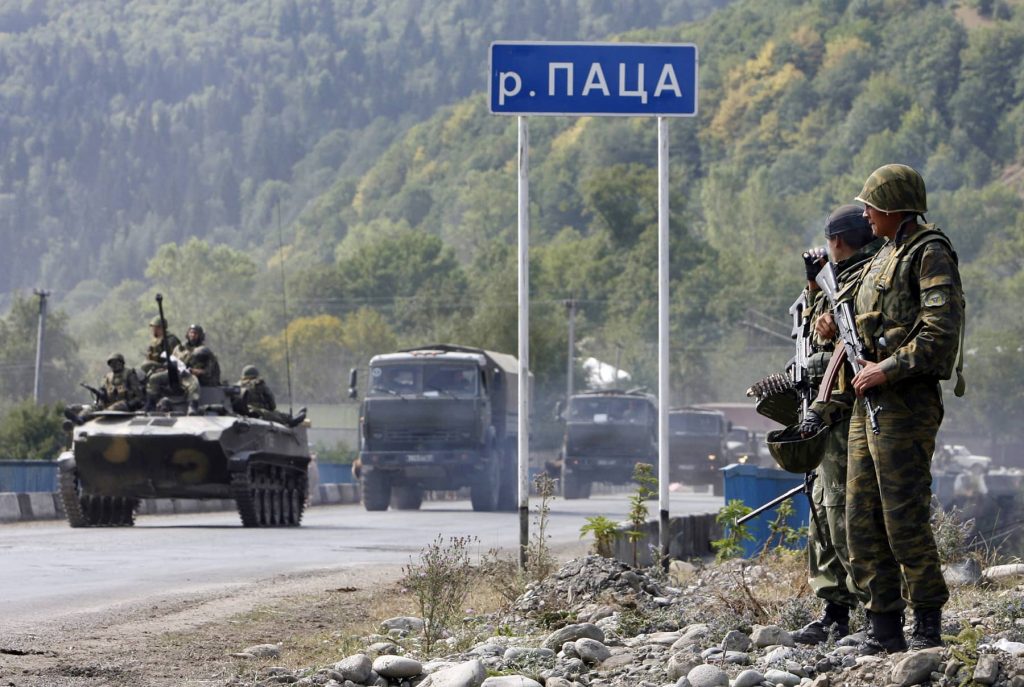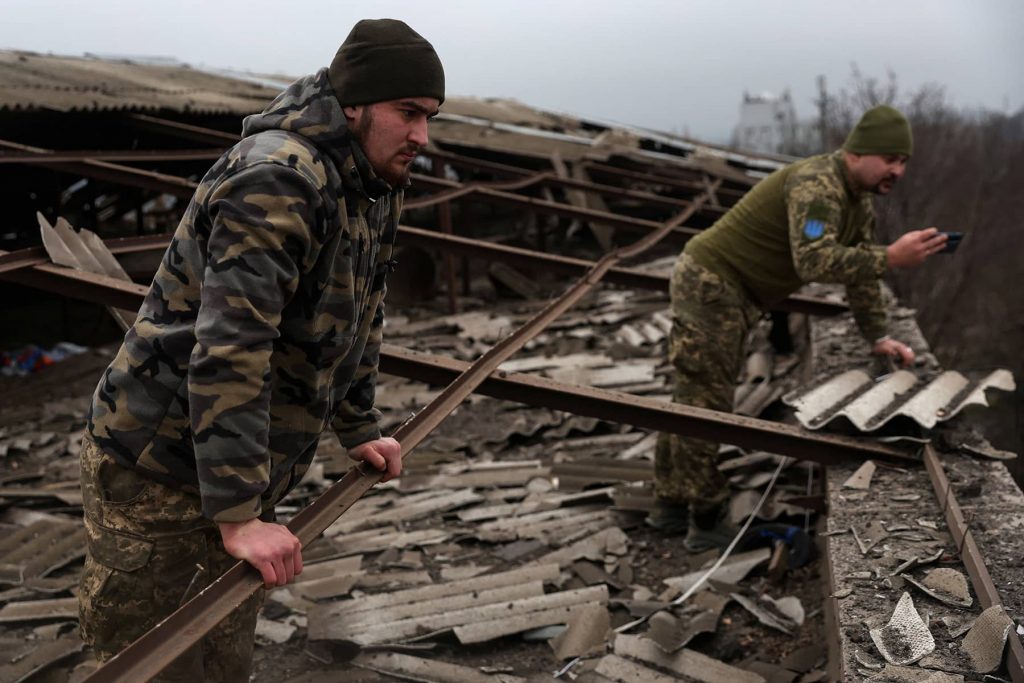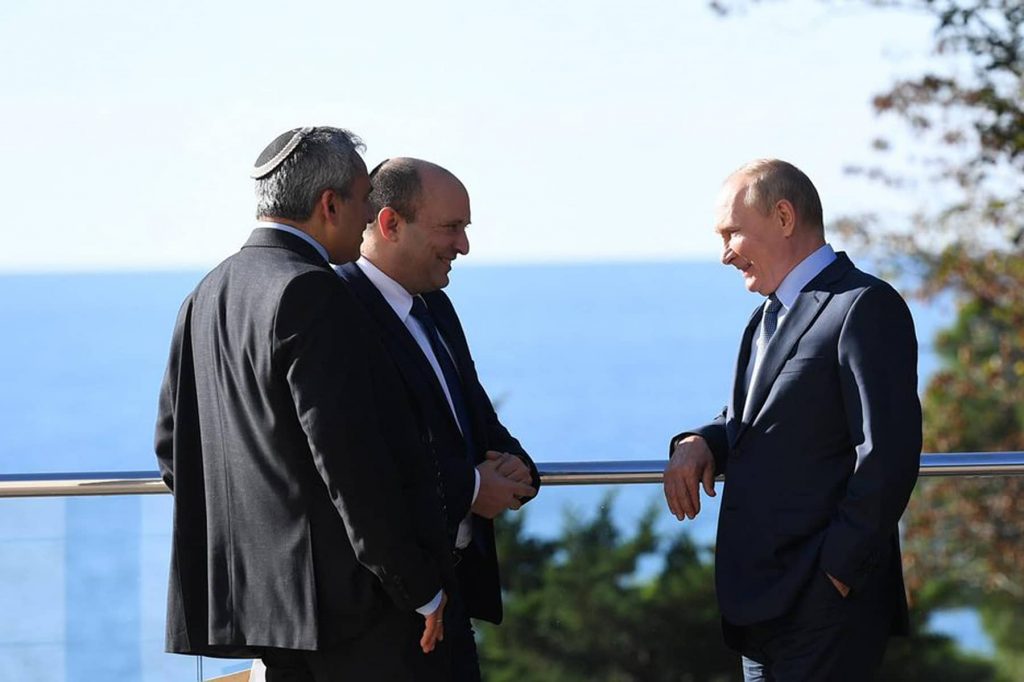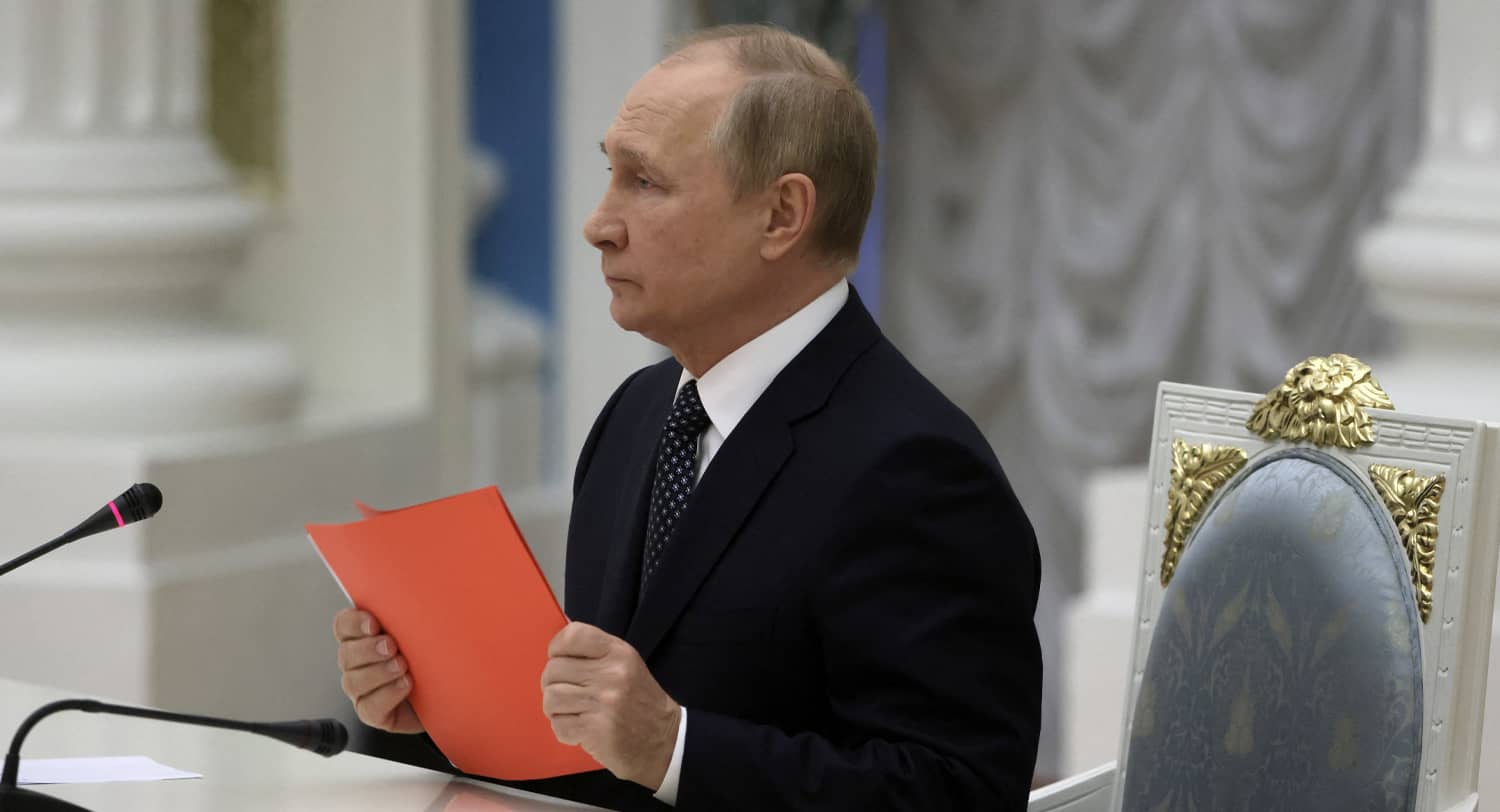Russia’s war of aggression against Ukraine has been underway for almost nine years and is closing on one year in its current, full-scale form. What we can learn from the war’s origins and initial stages may assist us in finding the right policies to help end it on the best possible terms for Ukraine and ourselves. Some lessons follow.
Recognize an Adversary
Putin once appeared interested in a constructive relationship with the West and the US specifically. He reciprocated President George W. Bush’s offer of friendship and cooperation or seemed to. He deepened Russia’s relation with NATO even as the alliance offered membership to Central European nations, including the Baltics, and after it had fought against Serbia to protect Kosovo. At home, he cast himself as a modernizer and restorer of the Russian state after what was seen as the chaos of the 1990s, but not in opposition to the West or to democracy. Among other things, he explicitly recognized in 2002 that “Ukraine is a sovereign, independent nation state and it will choose its own path to peace and security,” as then NATO Secretary General George Robertson recalled. It was reasonable to reach out to him.
But that changed. In the early 2000s, Putin curbed the power of the hated Russian oligarchs; instead of strengthening the rule of law, he made them his own servants. He took the private companies that had been created on the ruins of the Soviet economic system, but instead of putting into better governance, whether private or state, he made them part of a new system of personalized control. He crushed independent television, the first step in destroying Russia’s free media. Putinism came to include a climate of intimidation against opponents (like Mikhail Khodorkovsky, imprisoned for eight years). Murder of political opponents or merely inconvenient people started early on, including the assassination of journalist Anna Politkovskaya in 2006.
Oppression at home heralded an aggressive world view. While he accepted NATO enlargement (which the US had championed), he reacted with alarm and hostility at the “color” revolutions in Georgia and Ukraine (which took the US by surprise). Wrongly assuming a US hand in these, he took them as a violation of his demand that Russia be given a free hand in its sphere of domination. In 2007, at the Munich Security Conference, Putin presented another face to the world, hostile to the West and its values, the first full-blown expression of what we now know as Putinism.
The US and Europe both ignored that speech. Then US Secretary of Defense Robert Gates brushed it off with a light-hearted dismissal. But it was in earnest. Putin intensified pressure against Georgia, then in full pursuit of a European future for itself. The US was slow to recognize the threat, and many Western European countries were indifferent to it. At the NATO Summit in Bucharest in 2008, the alliance split on Georgia and Ukraine, and when Putin threatened Ukraine by making a claim to Crimea in his speech at the NATO-Russia Summit, the US and West European allies acted as if it had not been made.
When Putin attacked Georgia in August 2008, the US understood that it had been too slow to understand Russia’s dark turn. It supported Georgia and probably saved it from being overrun entirely. In a powerful, now forgotten speech that fall, Secretary of State Condoleezza Rice recognized Putin as an adversary. But the Obama administration, in office the following January, dismissed the Russo-Georgian War and attempted to revert to previously constructive relations through the “Russian Reset.” The West Europeans, especially the Germans and French, and some in the Obama administration even tended to blame Georgia’s leader, Mikheil Saakashvili, for provoking Putin.

Putin continued down his path of deepening autocracy at home and aggression abroad. In late 2013, Putin pressured his client in Kyiv, President Viktor Yanukovych, to rescind his promise to commit to a modest association agreement with the EU. This triggered protests that Yanukovych tried to suppress through increasing violence, which led to a revolt and Yanukovych’s fleeing the country in February 2014. Putin promptly invaded Ukraine, attacking first Crimea and then the Donbas, again catching the US and Europe off guard.
The US and Europe reacted to the first phase of Putin’s wWar against Ukraine with sanctions that seemed strong at the time. That, plus Ukraine’s resistance, precipitated Putin’s tactical retreat. He dropped (temporarily, as it turns out) his claims to huge parts of Eastern and Southern Ukraine, the areas that Russia now claims as its own, and accepted the Minsk Accords negotiated with the French and Germans, which acknowledged the Donbas as Ukrainian territory. But Putin did not allow the Minsk Accords to be implemented. Russia never fulfilled its first step, a ceasefire. And when Russia’s bad faith with respect to Minsk became clear, the West failed to respond with escalating sanctions but was temporized and seemingly relieved to have the Russo–Ukraine war relegated to the back burner.
Putin returned to escalation against Ukraine, starting a new military buildup in the fall of 2021. This time, the US read the signs correctly, anticipated that Putin would start a war, and attempted to dissuade Putin through a deft combination of warnings and offers to address any legitimate security concerns Russia might have. It was well done. But it came too late. And the US was almost alone in anticipating Putin’s war plans. The German government seemingly could not believe that Putin would escalate to a full-scale war, and it spent almost as much political capital in defending the ill-considered Nord Stream 2 gas pipeline as it did in urging Putin to stand down from war.
And the war came.
Going into detail helps recall that Putin’s turn to tyranny and aggression took place over years. We were warned. At many turns, the US and Western Europe misread or underread the signs, reacted sluggishly or without commitment. The Poles and Balts, prescient and perceptive about Putin, were sometimes dismissed as Russo-phobic. The Western Europeans and many in the US lacked imagination, as if after decades of misplaced analogies to Hitler and the 1930s, the emergence of a genuinely aggressive tyrant making war in Europe was simply impossible to credit.
Those who say that they believe in restoration of empire, who make claims against their neighbors, and warn of their aggressive intentions and worldview should be taken seriously.

Take Democratic Solidarity Seriously
The US assumed that Russia would quickly prevail over Ukraine. The Kremlin seems to have made a similar assumption, further assuming that the US and Europe would fold in the wake of the assertion of Russian will and power. But Ukraine did not collapse and the West did not back off. The power of Russia’s tyrannical system was not as great as fear made it, and democracies were more resilient when it came to the test. Ukrainian patriotism was deep and linked to a democratic vision of the Ukrainian nation and state, articulated by President Volodymir Zelenskyy. That vision and the brutality of Russia’s war captured broad support in Europe and the US for Ukraine that surprised most Western governments.
Strategically, the US, Canada, and Europe took Putin’s assault on Ukraine as a systemic challenge to the rules-based international system and to the democratic values that system had been designed to advance. They rejected the German approach of “change through trade,” the mistaken assumption that interdependence—especially in energy—led to stability and would foster systemic convergence. They rejected the spheres-of-influence alternative, championed by President Trump and many of the so-called “Realist” school, ready to abandon Ukraine to Moscow’s control.
The US and Europe imposed sanctions greater than anything the Obama administration had planned and kept with them. As Washington came to understand that Ukraine might successfully resist the Russian onslaught, the US stepped up its delivery of weapons of increasing sophistication, joined by the UK, Poland, and many other European nations, especially those with the greatest experience with Russia. Poland became an embarkation point for a massive logistics operation that recalled the Lend-Lease Act of 1941. Poland and other European countries welcomed millions of Ukrainian refugees.
The Kremlin seemed surprised by the speed of the initial sanctions, especially the locking down of a major part of Russian foreign exchange reserves. It seemed even more surprised that Europe did not retreat when Russia threatened and then implemented energy cutoffs. Whatever doubts Europeans and Americans may have had about backing Ukraine, the atrocities committed by Russia and stirring Ukrainian defiance generated consistently high levels of support for Ukraine’s cause. The Kremlin may have also counted on support from the Global South, much of which harbors lingering memories of Moscow’s ostensible “anti-imperialism.” And there has been some. But Russian atrocities burnt away much of this residual political capital, to the point where the statement made by the November G20 leaders, in negotiations led by Indonesia, included a paragraph excoriating Russia’s war against Ukraine, meaning that Russia (and China) had been passed over by a South-West combination.
Russia could still win the war. Its attacks on Ukrainian civilians and its potential to mobilize could force Ukraine into negotiations on Putin’s terms. But so far the record of the war and steady signs of military, economic, and social difficulties, as Putin’s promise of an easy victory fades, suggests otherwise. Democracies have some ability to affect the outcome, perhaps only on the margin, but, sometimes marginal differences determine victory or defeat.

Beware of Transactionalism
Israel has surprised (and dismayed) some by its reluctance to do more to support Ukraine in its struggle for its survival. The Israeli government’s assessment of its own interests and vulnerabilities was well described in this journal by Rakov and Shuker. According to this view, Israel is rightly sensitive to the potential pressure that the Kremlin could impose on Russia’s Jewish community, and must keep in mind that Russia could make trouble for Israel through Syria or otherwise. These are real vulnerabilities. But there is another side.
A transactional calculation of national interests is hardly unique to Israel. But it often leads to bad policy outcomes when applied to Russia. Critics of Germany’s Russia policy have pointed out that it conveniently made a strategic virtue out of German business interests and led to a failure of strategy, poor energy policy, and greater costs to the German economy. Hungary’s government has made transactional arguments for its sympathetic approach to the Putin regime and has approached Ukraine through the prism of a narrow definition of Hungarian national interests, rooted in a flirtation with irredentism and historical animosity toward the European borders that emerged after 1918.
While Israeli vulnerabilities to Russian pressure are real, Baltic vulnerabilities are greater. Yet these countries have championed staunch resistance to Putin’s aggression, seeing their national interests advanced by a defense of democracy in general. They see Ukraine, whose sovereignty is under attack from an outside, aggressive autocracy in this context. The Baltic countries, Poland, and other European nations have weighed their vulnerabilities vis-à-vis Russian pressure and have decided that their national interests are better served by consistency of principle and defense of values.
Israeli arguments for keeping its distance from Ukraine can be made on narrow, realpolitik grounds. Such arguments have been used over the years by those who opposed US support for Israel, also on realpolitik grounds. American officials made those arguments in opposition to US recognition of or support for the state of Israel (on the grounds that it would alienate Arab countries and thus damage US interests in the emerging Cold War). In their famous book from 2007, “The Israeli Lobby and US Foreign Policy,” Professors John Mearsheimer and Stephen Walt argued that the power of the Israeli lobby was distorting US appreciation of its own, true national interests in favor of excessive support for Israel. (Professor Mearsheimer is currently arguing that US support for Ukraine is similarly excessive.)
Arguments for Israeli caution in support of Ukraine may not be trivial. But should they be dispositive? Israel itself has long made arguments that it deserves support of its own democracy, on the basis of a generalized democratic solidarity. These are not the only arguments in favor of US support of Israel, but they are powerful ones and have been sustained over decades. A broader definition of national security rooted in values is not affectation or cant; for Ukraine, such a definition has proven powerful. Israel should reconsider its support for Ukraine, a country fighting for its life in the name of both national patriotism and broader universal values, an argument Israelis know well.

